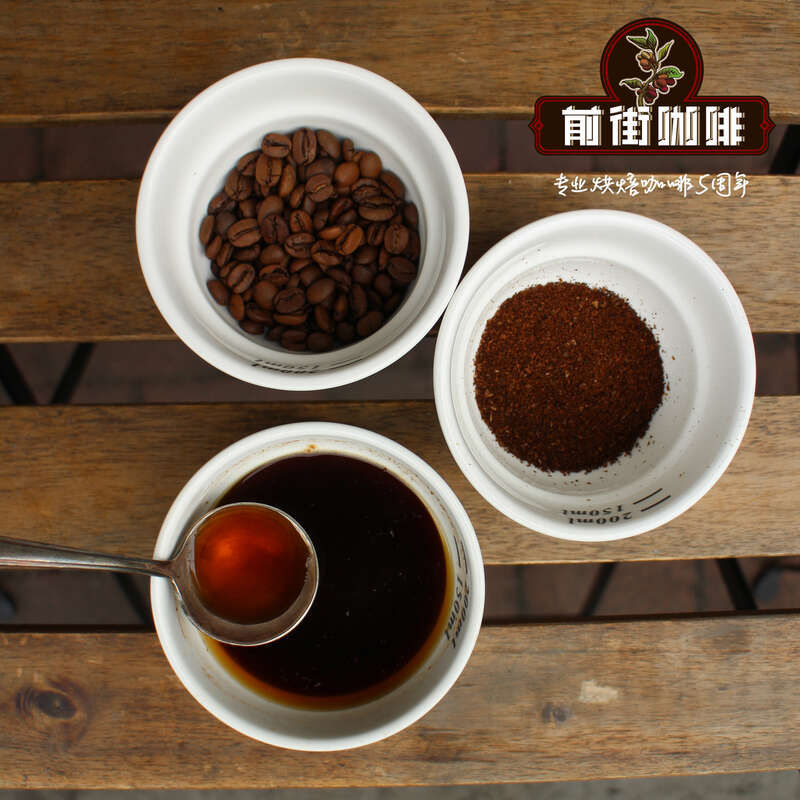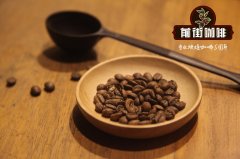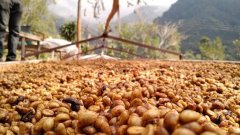What is fine matching beans better than single beans? how to adjust the proportion of fine beans?

In the past, formula beans have always been a common practice. However, for baristas and bakers in the third wave of boutique coffee shops, formula beans are not popular, perhaps because of concerns about the transparency and quality of their information, so many stores have switched to individual coffee beans as their main force.
Recently, there are some signs that formula beans have gradually evolved and re-emerged in the boutique coffee market in a higher quality and traceable form. Below we have sorted out some possible reasons and their possible benefits for baking and cooking.
Why do formula beans have a bad reputation?
Formula beans are usually made of more than two kinds of coffee beans mixed in different proportions to create their unique flavor characteristics. They can be different coffee plantations (national recipes) from the same country, or they can be made from a mixture of coffee beans from many different countries and give them a special name.
Mixing different coffee beans does not in itself make the quality worse. Formula beans have a bad reputation because some bakers mix leftover or stale low-quality coffee beans in their recipes or use them to mask some negative flavors to digest old stocks and reduce costs.
Richard Keane, chief manager of raw beans at Balzac Brothers, said, "in the past, whether you thought it was fair or not, formula beans were often thought to be mixed with some unpleasant beans. First, formula beans may have a high proportion of low-grade beans, so that bakers can increase their gross profit margin and easily find stable and large sources of raw beans. Second, bean bakers can effectively digest the stock of old beans by using formula beans.
Consumers' demand for coffee from traceable and single producing areas is gradually increasing, which makes the popularity of formula beans gradually decline. This may be partly because consumers want to find coffee beans that are more socially responsible and grow in a sustainable manner, and want to know exactly where they came from, who planted them, and the true purchase price. Richard continues to explain: "with the explosive growth of individual beans in the boutique coffee culture, formula beans are indeed becoming less and less popular. The value of traceability and the popularity of the flavor characteristics of single-growing / manor beans have changed the perception of formula beans by many people. This shift has enabled coffee growers to make better profits and help them become more competitive in the overall coffee supply chain. At the same time, it can help producers' coffee gain higher recognition, establish a reputation, and avoid exploitation.
Klaus Thomsen, one of the co-founders of Coffee Coleective in Copenhagen, Denmark, says another reason for the gradual tarnishing of formula beans may be that it obliterates the contributions of individual producers. He feels that the boutique coffee industry is gradually moving towards more transparent information, hoping to get rid of the anonymity of traditional farmers, so the industry may think that most of the formula beans violate this direction. In the formula beans, the contributions of individual coffee farmers are usually hidden, and most of the formula beans are hidden ingredients, you can not see the actual origin of the coffee beans. In the case of some formula beans, the package may only be marked "the best coffee from Central and South America", or even nothing.
The reason for rebirth
But there are some signs that formula beans may return to the boutique coffee market, offering more benefits to bean bakers and consumers in a more progressive model. The following is our arrangement:
Formulations can create better products.
Using the formula, bean bakers can create a more unique product, closer to market demand, and even better than the quality and flavor of its individual ingredients. Richard said that if properly mixed, the formula can have the effect of addition and multiplication, improving the flavor that the original single product lacked.
Klaus thinks so, too. "there are some creative ways to mix beans, which can be fun, and sometimes the effect of one plus one is greater than two," he said. I personally feel that when using formula beans to brew espresso, you can often get a better sense of balance and depth of flavor. But for me, this is different from brewing follicular coffee, when drinking follicular coffee, I usually pursue a clean and accurate flavor. "
Formula beans can be creative guest products.
Although some formula beans are designed for standard brewing methods, such as espresso or brewed coffee, bean roasters can also create new recipes tailored to new drinks, such as cold coffee or nitrogen coffee. Raul Rodas, the 2012 WBC World Coffee Master Champion, did this at his coffee shop and baking plant in Guatemala.
When Raul offers nitrogen coffee to customers, he configures 80% washed beans and 20% sun-dried beans to enhance the fruity aroma of the coffee. He also formulates two different Italian bean recipes, one with strong fruit acid and citrus flavors, and the other with caramel flavor. With different recipes, he can provide some new combinations and changes to the guests.
Formula beans provide stable flavor characteristics.
In addition to creating flavors that can't be tasted on a single product, formula beans can also provide a stable and consistent flavor that can be sold on shelves throughout the year for customers who want the same experience with every cup of coffee.
This allows bakers to ease the restrictions caused by the seasonal characteristics of coffee beans, as most producing areas do not harvest more than one year, or the harvest season varies from region to region. Creating formula beans allows bakers to provide a stable quality product throughout the year, or allows them to serve individual coffee for a longer time.
In this way, bakers can flexibly replace beans in the formula with the freshest raw beans of the season, but at the same time provide customers with stable and consistent flavor characteristics. For bean bakers, this ability is a valuable asset, which can maintain high stability of quality while growing in scale. Moreover, consumers will be happy to drink coffee with a stable flavor all the year round.
Formula bean mode makes raw bean purchase more flexible.
Creating their own recipes also means that bakers have more flexibility in purchasing raw beans, because they can provide the same coffee all year round without sacrificing quality and flavor.
Richard said that the formula bean model allows bakers to maintain the flexibility of purchasing raw beans without sacrificing the freshness of each batch. It also means that if something unexpected happens in the supply chain, bean bakers will be less affected, because the supply of raw coffee beans can be affected by many factors, from insect pests to weather factors.
With formula beans, when these unexpected situations occur, bakers will not run out of ammunition, because they will not rely solely on the supply of a single bean. This also makes formula beans a more scalable option because their raw bean production capacity is almost unlimited.
Formula beans can also be traced back.
Although previous formulations like to mix coffee from many different sources and hide their sources, the new concept of beans still retains its emphasis on traceability and continues to promote the concept of traceability to coffee farmers and consumers.
Revealing information about individual farmers' production is the best way to build a brand and a good way for customers to see each coffee farmer as unique, Klaus said. However, he also believes that this can be achieved without obliterating the individual contributions of each farmer, because "the formula can also reveal individual ingredients of beans, even as small as a farmer or a microbatch."
For Richard, this is a way for bakers to improve the overall quality of their products and coffee farmers to show goodwill. The most common way is to expose the proportion of coffee beans in individual farms in the formula directly on the coffee bags. "many bakers use this approach, so traceability is feasible in the formula bean model, and it also provides customers with more complete flavor diversity and levels. "
The rebirth of coffee formula beans has enabled bean bakers and coffee shops to benefit in different ways. As long as the focus is on the use of traceable and socially responsible raw beans, formula beans can still meet the needs of the market without compromising on quality or wasting farmers' efforts.
Important Notice :
前街咖啡 FrontStreet Coffee has moved to new addredd:
FrontStreet Coffee Address: 315,Donghua East Road,GuangZhou
Tel:020 38364473
- Prev

How to choose the time quantitative type and the fixed weight grinding machine? is the accuracy of the quantitative grinding machine high?
What is the time quantitative and fixed weight bean grinder? First of all, let's start with Espresso's cooking formula. Usually when we talk about brewing the formula, we refer to the amount of coffee powder in the filter cup, in proportion to the amount of liquid actually extracted into the coffee cup. (amount of coffee powder / amount of coffee liquid in the cup) but how do we define this amount? According to weight, volume, there are other parties.
- Next

Innovative treatment of coffee beans difference of three processing methods of coffee beans: sun exposure, washing and honey treatment
Innovative treatment methods have become a trend in recent years, and many brand-new or deformed treatment methods continue to appear, bringing many different taste spectrum experiences. But also because of the emergence of these treatments. Simply cite the classification of several traditional treatments in previous years, such as solarization (Unwashed/Natural), honey (Honey Process) or peeling (Pulp Nat).
Related
- Beginners will see the "Coffee pull flower" guide!
- What is the difference between ice blog purified milk and ordinary milk coffee?
- Why is the Philippines the largest producer of crops in Liberia?
- For coffee extraction, should the fine powder be retained?
- How does extracted espresso fill pressed powder? How much strength does it take to press the powder?
- How to make jasmine cold extract coffee? Is the jasmine + latte good?
- Will this little toy really make the coffee taste better? How does Lily Drip affect coffee extraction?
- Will the action of slapping the filter cup also affect coffee extraction?
- What's the difference between powder-to-water ratio and powder-to-liquid ratio?
- What is the Ethiopian local species? What does it have to do with Heirloom native species?

